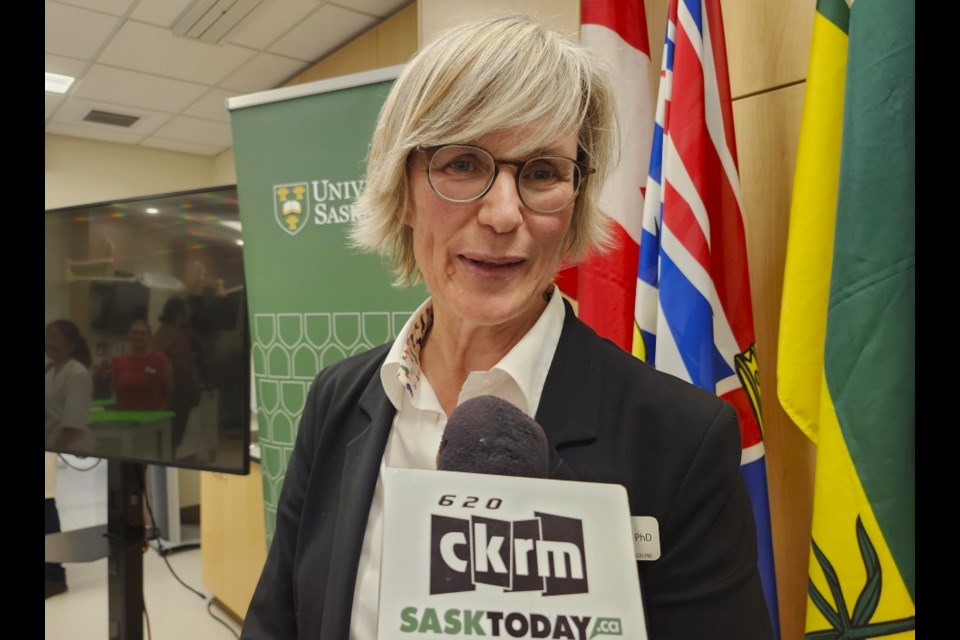SASKATOON — Saskatchewan, British Columbia and Manitoba have renewed their financial commitment to the University of Saskatchewan’s Western College of Veterinary Medicine (WCVM) on May 22, continuing a long-standing interprovincial agreement that has been in place for six decades.
The renewed agreement provides more than $194 million to the WCVM over the next five years, helping ensure the college can deliver critical veterinary medicine programming, research and clinical services that address the needs of each province.
Following the announcement, WCVM Dean Gillian Muir said they are looking to expand its programming to accommodate more students and address the shortage of veterinarians in the country. The university class is at capacity at 88, with 25 spots for Saskatchewan.
“There has been a long-standing shortage of veterinary professionals in Western Canada and nationwide. The 25 seats are the number of spaces that we have. We maxed out in the building, we don’t have any more space,” said Muir.
“But we are under discussion and considering expansion and what that might look like. We have a feasibility study underway, looking at what we need regarding infrastructure and operating money to expand our class size.”
Saskatchewan Advanced Education Minister Ken Cheveldayoff said there is an increasing demand for veterinarians, especially in urban centres, to care for pets and small animals, and in rural areas for livestock.
“When I go out to rural Saskatchewan, they talk about the need for large animal veterinarians across the province. We're hoping to meet that need in the future, but we'll continue to monitor it, and if we need more seats, we'll look at that as well,” said Cheveldayoff.
Cheveldayoff added that the partnership between the three provinces helps produce highly qualified and trained veterinary professionals, which the University of Saskatchewan’s WCVM is known for. At the same time, Alberta has a veterinary program of its own.
“We're the leaders; having the other provinces come together is great. We also do that with other programs, as each province looks at their specialization. [Alberta] decided to go their way, but the partnership between B.C., Manitoba and Saskatchewan is strong,” he added.
The funding for the agreement’s renewal, which has been in place for six decades, will help the college deliver the needed veterinary medicine programming, research and clinical services to address the needs of the three provinces. The program is only for Canadian students.
Muir added B.C., Manitoba and Saskatchewan coming together for the college will support the need for more veterinary professionals and help address the veterinary shortage across Western Canada.
“It was an extremely collaborative and supportive agreement. We all agree that we provide high-quality veterinary professionals for Western Canada, specifically Saskatchewan, Manitoba and British Columbia,” Muir said.
“There's a moderate increase over the years, not quite keeping up with inflation, but a moderate increase over the five years. The agreement funds the entire operation of the college. It supports education, enabling us to graduate as high-quality professionals.”
She added that the money also supports animal health research to advance animal health and clinical and diagnostic services that the college provides to Western Canada. The agreement is a continuation of the previous arrangement.
The class size is 88, with the WCVM taking 25 students, up from 20 in the previous agreement, each year for Saskatchewan over the next five years. Manitoba supports 20 students and B.C. 40 in each incoming class. In the four-year program, Saskatchewan will have 100 students.
Muir added that 80 per cent of the veterinary medicine graduates stay and work in Western Canada. The fund will help them continue training students willing to stay in the region and work in communities that need veterinarians for livestock and other animals.




